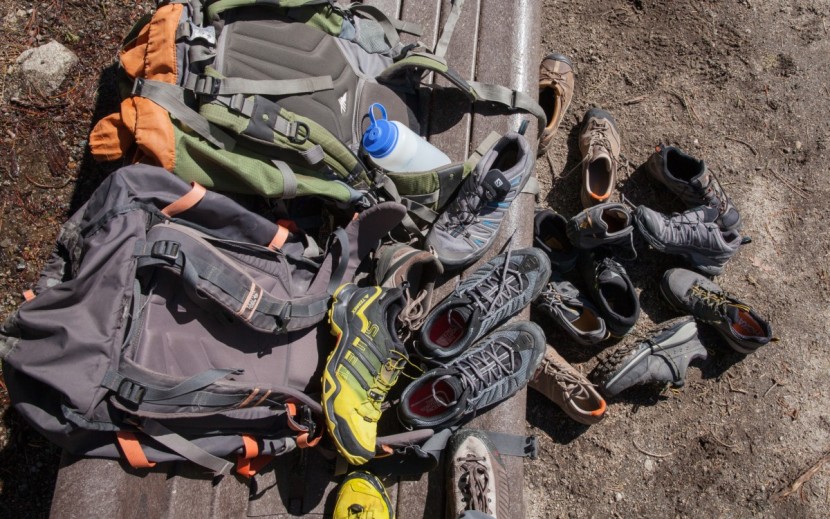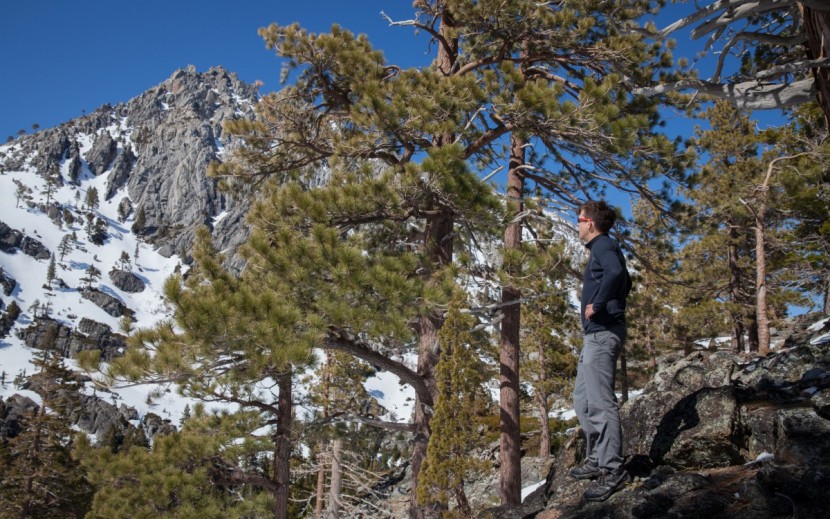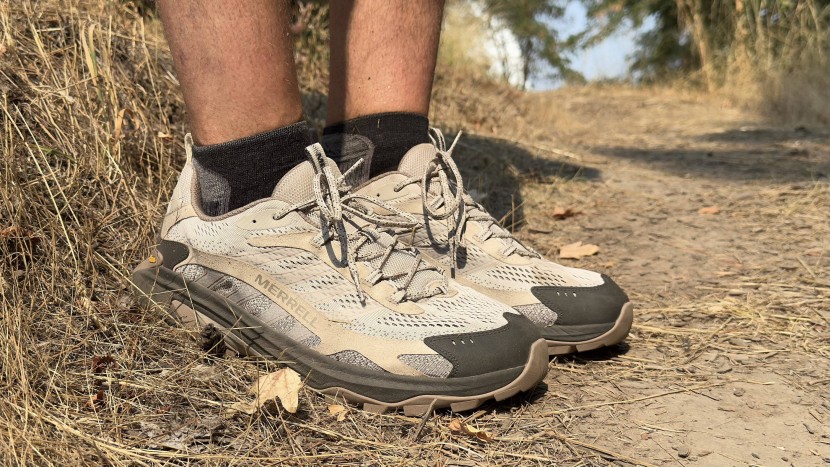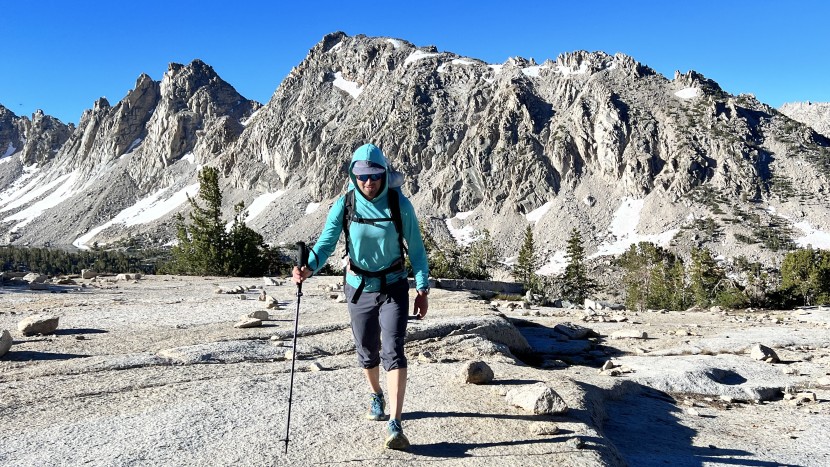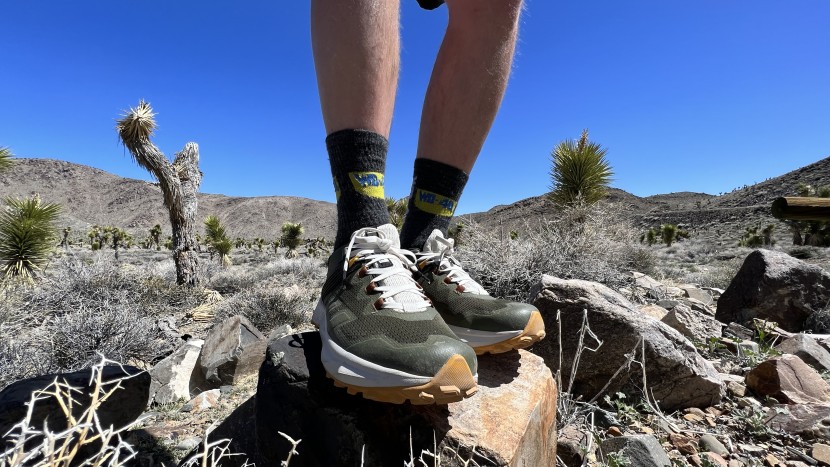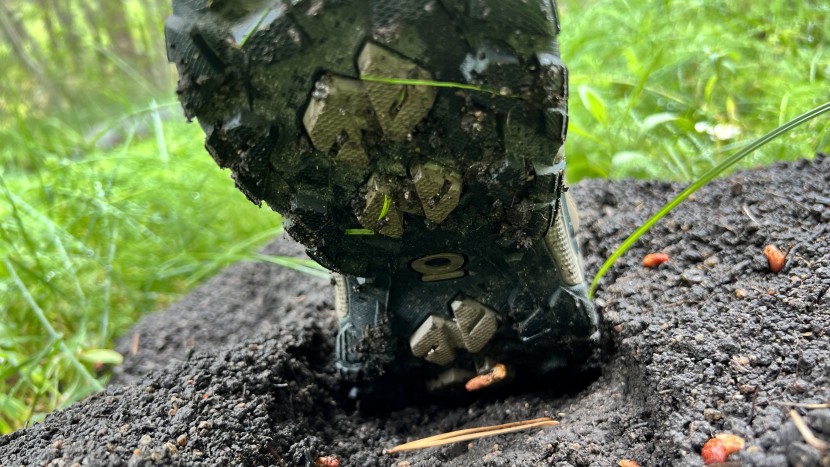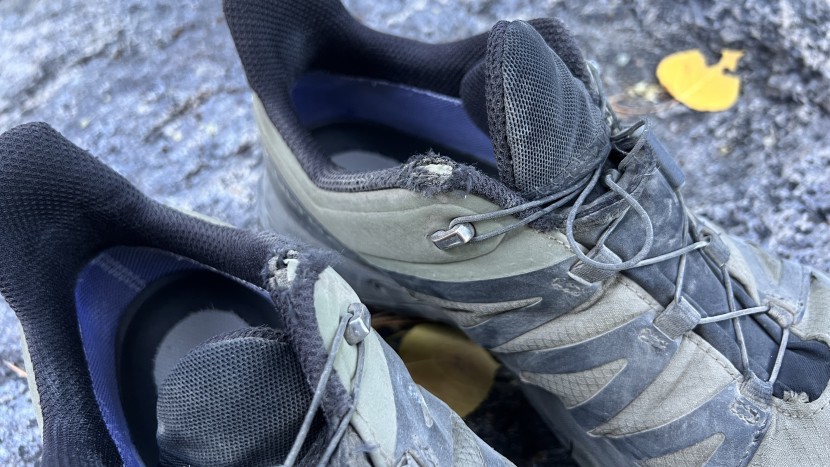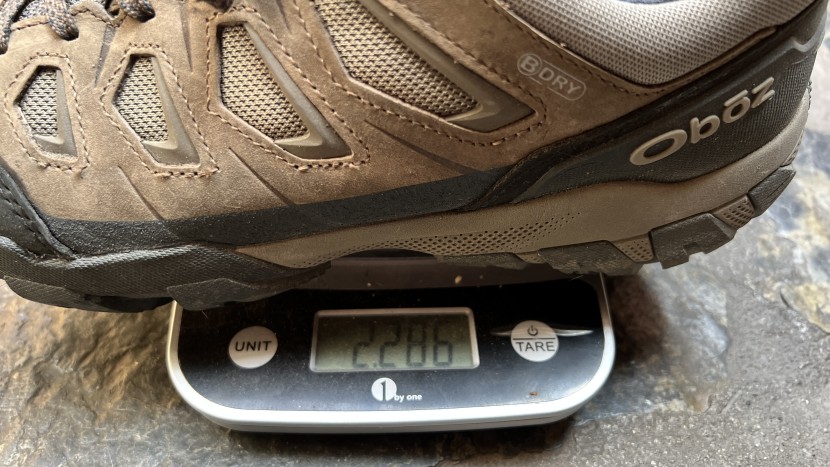There are a plethora of hiking shoes available today, so the first thing we do is to research the most popular and useful shoes, then narrow it down to the models you see here in this review to help you find the right option for your needs.
After receiving the fleet of hiking shoes, our testers wear these shoes in real-world conditions for a minimum of 20 miles per pair. Our head tester in this category works full-time in the mountains and has taken them into such varied areas as the Sierra Nevada, Death Valley, and the Cascades of the Northwest.
We assess each model over six scoring metrics, each weighted according to their significance. This is a comparative review, meaning that the score of a product is relative to the other shoes tested. Our scores were derived from a combination of our field experiences and specific tests.
Comfort
To evaluate the comfort of each shoe, we wore them all on short hikes and around town to break them in first, noting how long each one took. Then, we analyzed each one in our hands and on our feet. We felt the padding in the upper and the tongue. We laced up and stood in them to see how they felt, and to test its rocker, or lack thereof. We checked arch support, as well as the roominess in the toe box. Foot protection in the soles, toes, and heels was recorded, and we also stepped on uneven surfaces and pointy rocks to see how much we felt them with our feet. We took the same 5-6 mile moderate hike with long ascents and descents in each one and wrote down how our feet felt during and afterward.
We examined the lace systems, including the width between eyelets and how far up the foot/ankle it went. We judged how easy it is to adjust the fit in different parts of the foot. Any insecurities in the heel box, such as slippage, were recorded, too. For shock absorption, we jumped off a three-foot boulder onto a flat rock surface multiple times. Breathability was tested in the controlled temperature environment of our local gym. Each pair was worn for one mile at a three mph pace on a moderate incline. Afterward, we removed our shoes to check how hot our feet were, the dampness of the socks, and sweat accumulation on our heels, arches, and toes.
Support
The support of a shoe comes from its stability in the upper, width of the outsole, and internal shanks between the midsoles and outsoles. To a lesser extent, the insole also adds some support. To determine overall support, we considered these factors. We measured the height of the ankle collar, from the footbed to the highest ankle point, and then measured the widest point across the forefoot. These two measurements gave us a good idea of the stability and foundation provided with each step. The stiffness of the upper also came into play. A stiff upper might not be as comfortable, but adds protection and pushes back when the foot or ankle begins to roll.
Our lateral torsion test is designed to measure the rigidity of the sole, which is key to support in rough terrain and when carrying loads. We took each shoe, placed one hand on the heel and one at the front of the toe box, and twisted. The more resistance the shoe provided, the better torsional rigidity. Lastly, we inspected the insoles and preferred ones with dual-density layers at the back and middle of the foot.
Traction
Depending on where you hike, you might need a shoe that works well on one or two specific surfaces, or one that handles anything. We selected the five most common types of earth hikers will encounter, namely, dry rock, wet rock, scree/gravel, mud, and snow. These shoes were tested one after the other, and we wore different shoes on each foot to help determine which performs best. Afterward, we examined the lugs to determine how design affected performance.
Durability
A shoe's durability is best decided by hiking until the shoe falls apart. We inspected each shoe at the end of the trial period for any damage like loose stitching, rips in the upper, and wear on the soles. We also checked for weaknesses and potential problem areas down the road, such as stitch quality and a number of seams in high flex areas, the design of the toe cap, and upper burliness. For insight on their long-term durability, we scoured hundreds of online reviews looking for consistent patterns of wear and shoe failure. Lastly, we consulted our friends and fellow hikers on the trails about their experience.
Water Resistance
Most of the shoes reviewed have a waterproof membrane. To test the ability and durability of the membrane, we waited until the end of our testing period to conduct our waterproof test. This consisted of wading in a mountain stream for five minutes, with the shoes submerged over the forefoot and up the heel. We squatted and walked around to flex the forefoot to see if any leaks were induced. We experienced two leaks among the “waterproof” models, which occurred after a few minutes. We also measured the flood height, from the bottom of the outsole to the top of the waterproofing, which is commonly where the gusset of the tongue connects with the upper. A higher flood height indicates how deep these shoes go before wet feet happen.
Weight
Each model, including original laces and insoles, was weighed straight off the box on our scale. We prefer to take measurements ourselves instead of relying on the published specifications from the manufacturers.

